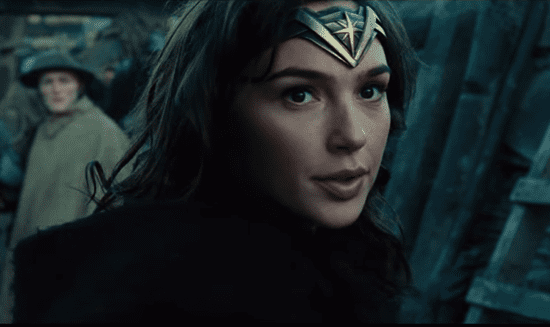
Gal Gadot in Wonder Woman, photo from Warner Bros. trailer
More Food For Thought
The climactic clash between Ares and Diana could almost be seen as a mirror to Satan’s temptation of Jesus in the wilderness. Ares invites Diana to join him—to forsake mankind, turn her back on her destiny and help him reshape the world in an image more pleasing (to him). He reminds her of how flawed humans are—how weak and bad and (while this word isn’t used) sinful they can be. They’re not the pure, wise beings that Zeus created. They are fallen creatures.
“They don’t deserve you,” he tells her. They deserve far worse.
That’s a deeply resonant echo of Christian theology right there. We do, don’t deserve the grace we’ve been given. We are sinful creatures, and in God’s perfectly pure calculus, we deserve death.
And yet, through grace, we live.
“It’s not about what they deserve,” Wonder Woman says in the end. “It’s about what you believe. And I believe in love.”
And with that, an avalanche of powerful verses tumble into play.
For God so loved the world that He gave His only begotten son …
Love bears all things, believes all things, hopes all things, endures all things …
We love because He first loved us. …
And if I have prophetic powers, and understand all mysteries and all knowledge, and if I have all faith, so as to remove mountains, but have not love, I am nothing …
Yes, Wonder Woman is definitely a mishmash of spiritual thoughts and inklings. But for all that, it feels kinda Christian when it counts. And I wonder if I’m the only one who, when I look at her new diadem, there’s just a hint of a cross in the star.












